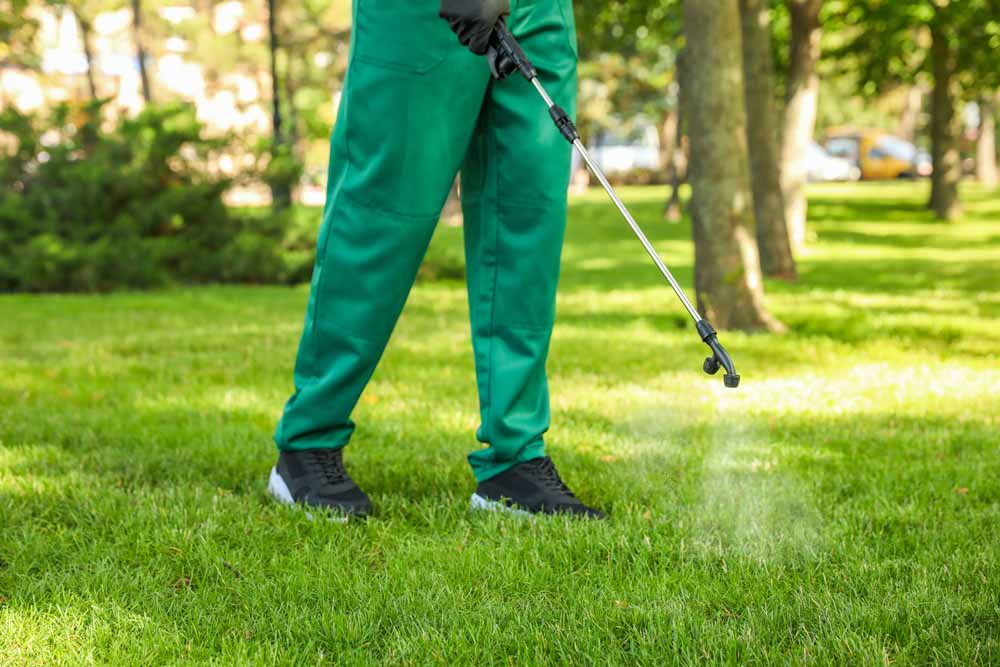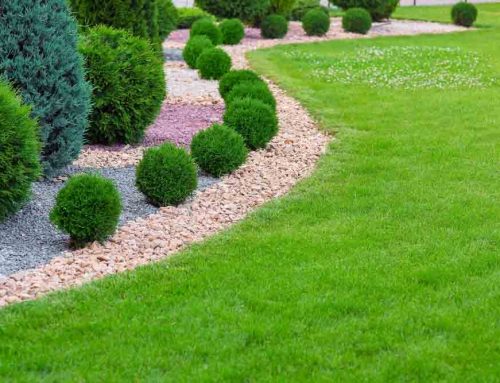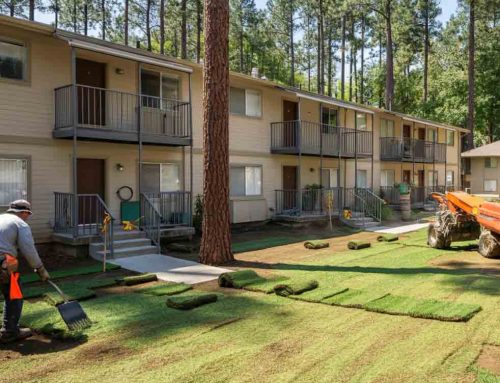Pugh’s Earthworks
Summer is the perfect time to enjoy the vibrant beauty of your lawn and garden. However, achieving that lush, green yard requires some thoughtful care, especially when it comes to Lawn Fertilizing and Weed Control. For homeowners and gardening enthusiasts, understanding the nuances of summer lawn care can make all the difference. In this comprehensive guide, you will discover practical tips, effective strategies, and valuable insights on how Pugh’s Earthworks will help to keep your lawn healthy and weed-free throughout the summer months.
The Importance of Summer Lawn Care
Summer brings its own set of challenges for lawn care. High temperatures, inconsistent rainfall, and increased foot traffic can stress your grass. Fertilizing and weed control are crucial components that help maintain a healthy lawn during these demanding months. By giving your lawn the nutrients, it needs and keeping weeds at bay, you can ensure your yard stays green and thriving.
Understanding Your Lawn’s Nutritional Needs
Every lawn has unique nutritional requirements based on its grass type, soil condition, and environmental factors. During summer, grasses, especially cool-season varieties, may experience slower growth. This makes it essential to provide the right balance of nutrients. Nitrogen, phosphorus, and potassium are the primary nutrients lawns need. Understanding how much and when to apply these can prevent nutrient deficiencies and promote healthy growth.
Choosing the Right Fertilizer for Summer
Selecting the appropriate fertilizer for summer use is key to successful lawn care. Slow-release fertilizers are ideal during this season as they provide a steady supply of nutrients over time, reducing the risk of burning your grass. Organic options, such as compost and manure, are also beneficial. They not only feed your lawn but also improve soil health. Always read the label to ensure the fertilizer suits your lawn’s specific needs.
Timing Your Fertilizer Application
When it comes to fertilizing, timing is everything. Applying fertilizer in the early morning or late evening can prevent the nutrients from evaporating in the heat of the day. Watering your lawn before and after fertilization helps the nutrients penetrate the soil efficiently. Aim to fertilize your lawn every six to eight weeks during the growing season, adjusting based on your grass type and local climate conditions.
Watering Wisely for Optimal Growth
Proper watering techniques complement your fertilization efforts. Deep, infrequent watering encourages roots to grow deeper into the soil, making your lawn more drought-resistant. Aim to water your lawn early in the morning to minimize evaporation and fungal growth. Using a soaker hose or drip irrigation system can provide even distribution and conserve water.
Organic Weed Control Methods
For those who prefer an eco-friendly approach, organic weed control methods are excellent choices. Corn gluten meal is a natural pre-emergent herbicide that prevents weed seeds from germinating. Mulching with organic materials such as wood chips or straw can suppress weed growth by blocking sunlight. Hand-pulling is also effective for small infestations, especially if done regularly.
Chemical Weed Control Options
Sometimes, organic methods are not enough, and chemical weed control becomes necessary. Selective herbicides target specific weeds without harming your grass, while non-selective herbicides eliminate all vegetation. Always follow the manufacturer’s instructions and consider spot-treating problem areas to minimize environmental impact. Combining chemical and organic methods can provide comprehensive weed control.
Preventing Weed Infestations
Prevention is better than cure when it comes to weeds. Maintaining a healthy, dense lawn can outcompete weeds for resources. Regular mowing at the appropriate height helps prevent weeds from setting seed. Aerating your lawn annually improves soil structure and reduces compaction, creating an unfavorable environment for weeds. Fertilizing correctly also strengthens your grass, making it more resilient to weed invasions.
Common Summer Weeds and How to Identify Them
Identifying common summer weeds is the first step in effective weed control. Crabgrass, dandelions, and clover are frequent invaders in many lawns. Crabgrass thrives in hot, dry conditions and spreads rapidly. Dandelions have deep taproots and produce prolific seeds. Clover can fix nitrogen in the soil, benefiting nearby plants but also indicating low soil fertility. Knowing what you’re dealing with allows you to choose the most effective control methods.
Pugh’s Earthworks Pest Management for Lawns
Pugh’s Earthworks uses a holistic approach to lawn care that combines cultural, biological, and chemical methods to manage pests. Regular monitoring helps detect issues early. Encouraging natural predators, such as ladybugs for aphids, can reduce pest populations. When necessary, our team uses targeted treatments to address specific problems without disrupting the overall ecosystem of your lawn.
The Role of Soil Health in Lawn Care
Healthy soil is the foundation of a thriving lawn. Conducting a soil test provides valuable insights into its pH and nutrient levels. Amending soil with organic matter, such as compost or aged manure, improves its structure and fertility. Proper aeration and drainage also play crucial roles in maintaining soil health. Healthy soil supports robust grass growth and reduces the likelihood of weed and pest problems.
Creating a Lawn Care Schedule
Establishing a regular lawn care schedule helps you stay on top of essential tasks. Mark your calendar for fertilization, watering, mowing, and weed control activities. Adjust your schedule based on seasonal changes and specific lawn needs. Consistency is key to achieving long-term success in maintaining a beautiful lawn.
Engaging with a Lawn Care Community
Joining a community of fellow gardening enthusiasts can provide support, inspiration, and valuable tips. Online forums, local gardening clubs, and social media groups are great places to connect with like-minded individuals. Sharing your experiences and learning from others can enhance your lawn care knowledge and keep you motivated.
Conclusion
Maintaining a lush, green lawn during the summer requires dedication, knowledge, and the right strategies. By understanding your lawn’s nutritional needs, choosing appropriate fertilizers, and implementing effective weed control methods, Pugh’s Earthworks will help you can enjoy a beautiful yard all season long. Remember, healthy soil and consistent care are the foundations of successful summer lawn care. For personalized advice and expert tips, consider reaching out to local gardening centers or professionals.
Summer lawn care does not have to be daunting. With these tips and strategies, you will not only keep your yard looking fantastic but also cultivate a healthier, more resilient lawn. Ready to take your lawn care to the next level? Connect with Pugh’s Earthworks and together, we can achieve green, gorgeous lawns that are the envy of the neighborhood.
Pugh’s Earthworks Residential Lawn Fertilizing & Weed Control
Pugh’s now offers lawn fertilization and weed control services to residential customers. We currently operate in the greater Memphis, Tennessee metropolitan area. Our service area includes Arlington, Bartlett, Collierville, Germantown, Lakeland, Memphis, Millington, Oakland, Olive Branch, and Southaven, Mississippi. Our firm is family owned and operated. We are proud of the fact that Pugh’s is one of the most trusted brands in Memphis, Tennessee.
We offer annual service packages that include a number of affordably priced options. Choose from monthly visits, quarterly visits, or semi-annual service calls. Our most popular option tends to be the quarterly service program. That program ensures that your lawn is treated with the precise lawn products designed for Spring, Summer, Fall and Winter treatments.
Pugh’s Lawn Spraying and Fertilizing
Pugh’s Earthworks
Memphis Headquarters
Phone: (866) 207-4734







